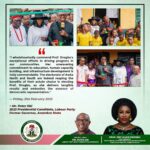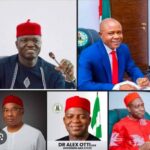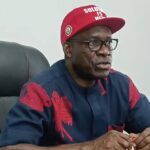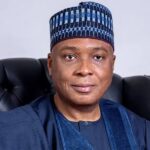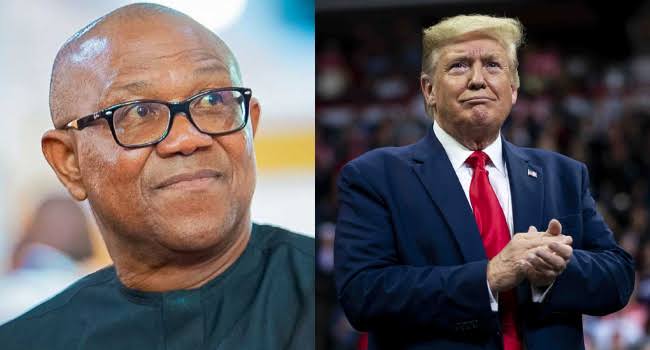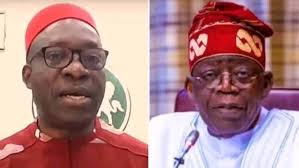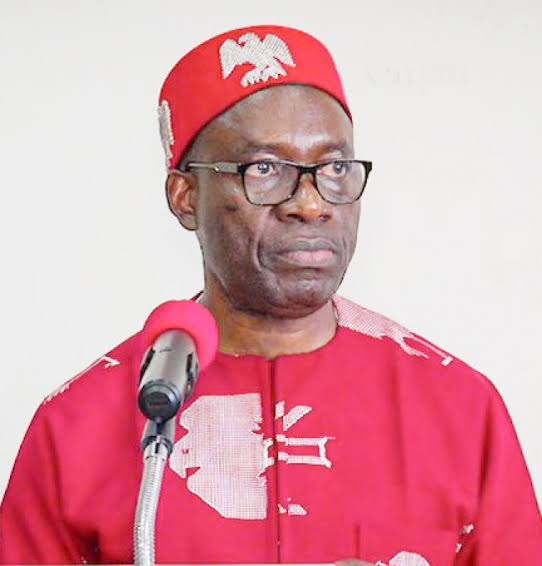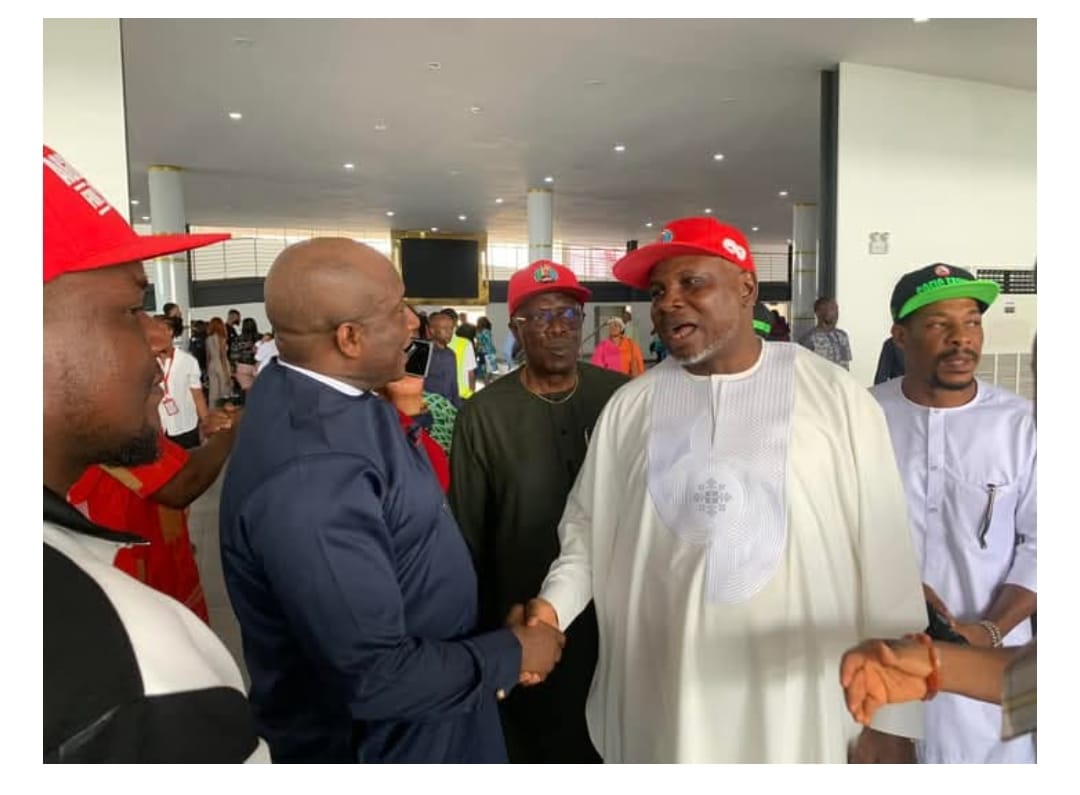I have had the privilege of high office and can state without equivocation that the office of the Nigerian president is one of the most powerful presidencies in the world with enormous powers, coercive and otherwise.
The President is the Commander-In-Chief of the Armed Forces. He has ultimate control of the activities of the armed forces and all other uniformed and non-uniformed security services in Nigeria. He decides by nomination and appointment, members of the judiciary, the executive, and heads of national bodies across the country. In addition, he enjoys the effects of an illusory separation of powers with the National Assembly that has largely existed at the behest of the executive office. It is also the responsibility of the president to set the moral and cultural tone of the entire nation. The President has ultimate responsibility for the welfare and well-being, the security, development and good governance of the federation and citizens of Nigeria.
Despite this remarkable availability of power, the lackadaisical approach to the deteriorating security situation in the country begs the question – who is really in charge?
Mr President, you have been sworn in. You have appointed the members of your government, represented the country on the international stage, and presented a budget; but the greater duty of the presidency is the security of life and property. I must confess that it was a shock to find the Christmas Eve massacre in several communities in Plateau State and the ‘accidental’ bombing of citizens in Tudun Biri, Kaduna, by the Nigerian army absent from the President’s New Year speech. Considering that your only reference to these subjects has been through surrogates, direct references to the subjects would have been the respectful and conscientious thing to do.
The Christmas Eve massacre in Plateau State left over 200 people dead and more than 300 injured. This horrendous attack and others that took place during the festive period are not isolated occurrences of insecurity in the country. Convoys of political officers, including a sitting governor are attacked with a heightened sense of boldness and impunity. Nigerians have almost become numb to the constant reports of terrorism, banditry, robberies, kidnappings, mob justice, and the sacking of whole communities.
The campaign of genocide in the middle belt has unleashed increasing terror for over a decade, with the deliberate killings of indigenes by so-called herdsmen who brandish sophisticated weapons. The previous administration under Buhari paid lip service to the safety of citizens in its 8 years of existence. Instead, there was a concerted effort to placate the terrorists at the expense of the victims. The resistance by the communities and states involved was met with barely veiled threats and insensitive comments from the presidency with the administration’s spokesperson, Mr Femi Adesina, once saying, “Ancestral attachment? You can only have ancestral attachment when you are alive. It is better to be on the land than under it.”
Following the staunch rejection of the land-grabbing efforts in the guise of Cattle Colonies, Cattle Routes, RUGA, and Grazing Reserves, the killing spree intensified, sending scores of Nigerians to the grave and chasing thousands more out of their homelands. Concurrently, security across the country deteriorated.
So-called statesmen and terrorist apologists consistently made flippant and inflammatory comments, further exacerbating an already volatile situation.
Today, Sheikh Ahmad Gumi, the self-acclaimed spokesperson for terrorists continues to stoke the embers of hatred with insensitive and exasperating comments, making bogus claims of victimisation of Muslims.
His October 2023 diatribe was a compendium of misinformation, hatred, and unfounded paranoia. His arrogance has been fed by the government’s kid gloves treatment of his insensitive and inciteful statements such as “Kidnapping children from school is a lesser evil”, “How many people have bandits killed? A few”, and “The military is responsible for terrorist attacks and pushing the blame on Boko Haram”.
There is no cogent reason to explain why the State Security Services has yet to caution his tirade of misinformation and revulsion towards Christians, Southern Nigeria, and other groups whose beliefs differ from his own.
We can not afford a presidency that inherits the erstwhile administration’s collusive, dismissive, and patronising approach to security, while the country continues to burn on multiple fronts.
The security of lives must be the priority for this administration. Tackling these factors of insecurity are precursors to the success of the president’s economic agenda to ensure food security, poverty alleviation, reduced unemployment, and social security. Food inflation rose to 33.93% in December 2023 and will continue its upward trend if farmers are unable to safely return to their farms.
Ali Ndume, the Chief Whip of the Nigerian Senate, has consistently advocated the increase in the budget for defence, citing underfunding as the excuse for the poor performance of the military and security services at large. There is no doubt that security demands extensive financing. But we must interrogate the utilisation of the trillions of naira allocated in the past 13 years. The defence budget has grown year after year, yet insurgents, terrorists, and bandits continue to establish themselves and undermine the sanctity of life and Nigeria’s corporate existence.
Between 2011 and 2023, Nigeria budgeted N14.204 trillion for security and defence. This figure is exclusive of supplementary approvals through the years including the controversial withdrawal of $1 billion from the Excess Crude Account in 2018. Security Votes to State governments have exceeded N3 trillion and have remained unjustified as no state has been able to rise above the menace of insecurity. Insurgents daily taunt the Nigerian security forces through audacious attacks. They expose the vulnerabilities of our armed forces with attacks on multiple fronts across all regions of the country. Their weapons have become more sophisticated through the years, while members of the Nigerian military lament about inadequacies of personnel and equipment.
Our security challenges appear to have become a bottomless pit for our depleting national resources. In July 2023, the Chief of Army Staff, Lieutenant General Taoheed Lagbaja assured Nigerians that the Nigerian Army has sufficient equipment to tackle insurgency, banditry, kidnapping, and other crimes. However, in December 2023, whilst appearing before the Senate Committee on Defence, made a call for more funding again “to nip in the bud, incessant cases of insecurity in the country”.
The IGP, Kayode Egbetokun echoed these sentiments while addressing the House of Representatives in November 2023. The Minister of Defence, Alhaji Abubakar, made a similar call in December 2023.
This raises questions about the appropriation of the billions and trillions deployed over the years.
Allocations to defence and security, which includes the military, police, intelligence services, Civil Defence and paramilitary services, have increased by 932.9% from 2011 (N348 billion) to 2024 (N3.25 trillion).
Succeeding governments have prioritised defence and security in the annual national budgets. However, we must go beyond throwing money at the security challenges and match this prodigious funding with corresponding structures that ensure accountability.
With the absence of accountability or improvements in the security conditions of the country, it would appear that a special ATM economy has evolved for the benefit of security elites and accomplices in the executive and legislative arms, at both the federal and state levels of government.
Criminals have become more impudent in their enterprise with the possession of advanced weapons and alleged collusion with security agencies. The Plateau state massacre was preceded by a note of warning to the communities that were attacked. The availability of this free intelligence made no difference and security agencies were absent in an attack that was reported to have lasted over 12 hours. Members of their community made efforts to reach security agencies via the call numbers provided without success, raising concerns about the complicity of the security forces with the attackers.
The country has been in distress in the past week over the killing of Nabeeha (18) and Folorunsho (13) after several families were kidnapped from their homes in Abuja, the seat of government. The oldest children of these families were killed after the kidnappers were informed that the ransoms were incomplete and the ransom amounts for the other victims were subsequently increased. The audacity of the abductors is both infuriating and baffling. Their actions openly challenge the Nigerian security agencies as either incompetent or complicit.
Criminals at different levels have not failed to fulfil their threats to harm Nigerians, while the Nigerian leadership and armed forces seem constrained in their ability to protect Nigerians. Kidnappers name their ransoms and increase them with confidence whilst watching Nigerians scamper around to raise the ransom amount for their latest victims.
The security forces seem bereft of ideas, competence, and courage to apprehend these malefactors, keep Nigerians safe, and restore sanity.
Rather, many have also become a threat to Nigerians through brutality, oppression, disregard, and sabotage that has led to the avoidable deaths of our soldiers and the destruction of military resources.
Mr President, again I ask, who is in charge?
In response to the request of Service Chiefs and the Inspector General of Police, the security and defence budget for 2024 reflects a marked increase from N2.98 trillion in 2023 to N3.25 trillion, a 9% increase. With the deteriorating insecurity despite enormous funding in the past years, Mr President must take charge and deploy the coercive powers of his office to demand accountability for every naira allocated to the security sector. President Tinubu must, as a matter of urgency, address the claims of corruption, collusion, and disenchantment within the armed forces.
We must depart from a budget performance report that only highlights percentages of allocated amounts spent. Security budget utilisation must be closely scrutinised on an ongoing basis by the Senate Committee on Defence and the National Security Adviser, with non-sensitive portions shared with the public.
A country embroiled in bloodshed, ethnic disputes, kidnappings, and crime on many fronts must implement heavy scrutiny of every amount allocated to the Ministry of Defence and the Nigerian Armed Forces.
We must begin to see the fulfilment of line items included in these budgets year after year.
Our intelligence services must be robust, earnest, and deftly integrated with other actors in the security sector.
Years of extensive financing must reflect in the continuous modernisation of our security architecture and services. Security Services must leverage innovation in the industry, deploying software and hardware technology that improves administrative and operational efficiency.
We also need to ensure increased police presence in suburbs, city centres and outskirts of cities that are prone to security breaches. There are no public records of additional recruits to military personnel, with available records showing a static figure of 223,000 members since 2018. It is critical to boost the manpower of our security agencies.
The above recommendations are familiar to the government and security operatives. However, we must go beyond knowledge to action.
In the same vein, the debate for the decentralisation of security architecture must reach a pragmatic conclusion and proceed to implement a framework that solves local crimes and security issues with local attention from the affected state governments.
The welfare of all servicemen, from the paramilitary to the police and soldiers on the frontlines must receive the utmost attention. Reassurances of improvements to welfare by successive Service Chiefs, IGP, and the government have only been followed by further deterioration of living barracks and remuneration. If we are serious about restoring discipline to the ranks and resolving security challenges, policies for the well-being of the officers and their families, serving and retired, must be rightly implemented.
We are in a state of emergency. In line with the words of General T.Y Danjuma in 2018, the Governors in the middle belt are also calling for the armament of citizens to protect themselves. The Chief of Army Staff, Lieutenant Lagbaja raised objections to this advice, stating that it would lead to anarchy.
The COAS must be aware that we are already teetering on the edge of anarchy. Nigeria has become a country where no citizen can boast of being safe, while its top government officials and most wealthy grapple for the privileged protection of security agents. We are not unaware that members of the elite brigade of guards were attacked in July 2022. That brazen attack demonstrated that insurgents will stop at nothing to achieve their enterprise. It shows that no one is safe and that the protection of one is the protection of all.
As the news of the Nabeeha and Folorunsho killings swirled in the media, Nigerians did not react by calling on the government or security agencies to apprehend the abductors and rescue the victims. Nigerians turned to themselves to raise the funds required for their release.
It would be ill-advised for the President and the service chiefs to ignore the underlying message that there is a dire lack of confidence in the government and security forces to protect the citizens. The dreaded anarchy is only moments away and no one will be safe if it happens.
Mr President, we have gone beyond being “troubled” and “disheartened” by the deaths of citizens across the country.
It is in our collective interest that you awaken to the reality that Nigeria is on the brink of failure.
You must rise to the occasion of the office you tenaciously secured and enact your command of the armed forces to benefit the Nigerian populace.
The world cannot contain Nigeria if we fall apart.
I wish Mr President and Nigeria great success.
Frank Nweke II, a former member of Nigeria’s Federal Cabinet (2003-2007) and Director General of the Nigerian Economic Summit Group (2009 -2014) is a Senior Visiting Fellow at the Lagos Business School.
ThisDay

